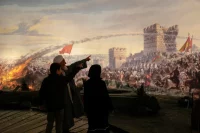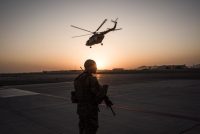
Order After Empire
The history of empire involves a confusion. In the minds of many, it is associated with European rule over large parts of the developing world that forever stains the reputation of the West. But empire has taken many non-Western forms, especially in the Middle East. Beginning with the Umayyad dynasty in seventh-century Damascus, a series of Muslim caliphates established far-flung rule, sometimes spanning the Mediterranean. In subsequent centuries, they were followed by the Ottomans, who extended their rule to the Balkans, and the Omani Sultanate, which in the nineteenth century spread from the Persian Gulf to parts of Iran and Pakistan, as well as to Muslim East Africa.… Seguir leyendo »





